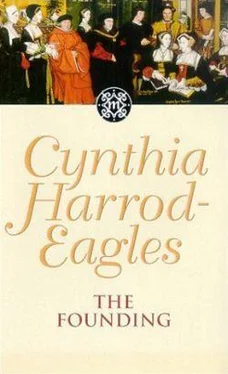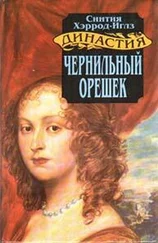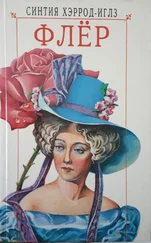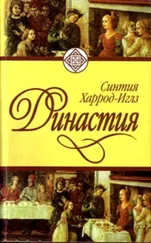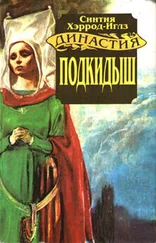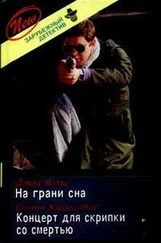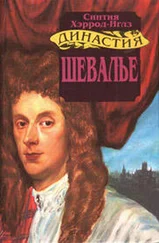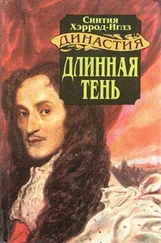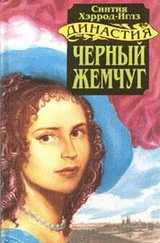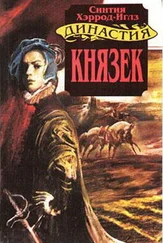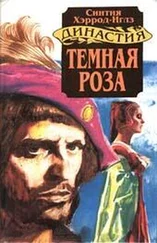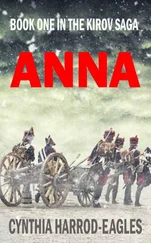No, that was not quite true. There was something, something she longed for and hardly dared to hope for, something over which her mind plunged and soared from wild hope to deep despair and back again, so that she hardly knew any longer whether it was a hope or the most distant of dreams. As she thought about it, her busy fingers, all unknown to her, slowed and stopped and lay idle in her lap. Her eyes went again to the window and gazed out, over the little stone houses of the village with their lichen-gilded roof-tops, past the outfields and common land and the fringes of woods to the great wild hills, where the wind bent the trees and snatched the clouds into fronds.
His name was Richard. He was twenty-three, and unmarried, a soldier, with a soldier's broad shoulders and light step. He was not tall, and rather stocky, broad-chested and strong; he had a square, good-humoured face, sun-bronzed, and fair hair burnt white as barley at the front from the weather. His eyes were blue, and had a piercing gaze that seemed to see into your soul. He didn't smile often, not because he was dour but because he thought deeply about things; but when he did smile, it lit his whole face, and made you feel that the sun had come back after a long winter. It was a smile that warmed your heart, that made you willing to lay down your life for him.
He and Lord Edmund had been in France together three years ago for the trial of Joan the Maid at Rouen and the coronation of the boy King at Paris. That was in December, and the following spring they had come back and stayed for a while in the home of the newly-wed Lord Edmund, where there was feasting and games, dancing and music. Where Eleanor had first met him, and fallen in love with him. Like any soldier home from France he had a will to enjoy himself and an eye for a pretty girl. Eleanor was beautiful, and he danced with her, teased her and complimented her, praised her singing and her dark eyes. And one day, as they walked in the pleasaunce just out of earshot of the rest of the party, he had drawn her into the shadow of a bower and kissed her.
Eleanor's young heart, all unguarded, had no chance. His voice, his smile, even the brush of his sleeve against her hand as they sat at the high table, were all that filled her mind and heart day after day, and she knew even in the heady excesses of her love that she was mad to let herself love him. For he was no ordinary Richard — he was Richard Plantagenet, the Duke of York.
He was rich, powerful, a general and a statesman, the head of his family, a Duke and some said more royal than the King himself, for he was descended by his mother from the second son of Edward the Third and by his father from the fourth son. And she was Eleanor Courteney, a penniless orphan. Sometimes she was in the depths of despair, knowing how disparate were their positions. At other times she was hopeful, for if he loved her, he might marry her — there was no one to gainsay him, and he might do as he chose.
She clung to her hope and her dreams, and to the one tangible memento she had of him: last Christmastide he had sent gifts to the family, and had remembered Eleanor too. He had sent her a small, leather-covered missal with her device — a white running hare — embossed on the cover. It was an expensive gift even from a duke, but she treasured it more because he had sent it than because it was valuable. She wore it attached to a chain which hung from her belt, and at night it was under her pillow. She was never without it — it was her talisman.
A noise at the door drew her back suddenly from her reverie, and she realized that the light had almost gone and she would not be able to finish her fine work. The next moment the door was flung open, and her master entered, followed by a servant carrying his chair. Lord Edmund had two chairs, and he was justly proud of them. This one, in red velvet with gold cords and embroidery, went everywhere with him, even to war, where it occupied pride of place in his tent; the other, in green velvet with silver embroidery, kept its place on the dais in the hall and was used by honoured guests or, when there were none, his wife.
Eleanor and Belle had risen at his entrance, and he signed them to sit as he himself sat down and sent the servant away. Belle sat again on her stool, and at a sign from her master Eleanor left the window and took a cushion on the floor beside Belle.
'For it was really you I came to see, mistress Eleanor,' Lord Edmund said. He treated her to an unaccustomed scrutiny, and was apparently satisfied at what he saw, for he smiled and said, 'You have a pretty colour in your cheeks today, mistress. I hope you are in good health?'
‘Perfect, thank you, my lord,' Eleanor said, mystified. ‘That is good, for I have found you a husband, and you are soon to meet him.’
Eleanor turned pale at the words, and her hand went instinctively to the fold of her surcoat, fumbling for the chain of the missal, her talisman. A husband? Who? Could it be, could it possibly be? But no, he said he had ‘found' a husband. He wouldn't say that about him. Lord Edmund looked on smiling at her confusion, though not knowing, of course, the wild thoughts that were tumbling through her mind.
‘Yes,' he said, 'you are surprised, and I expected it, for you have been left so long a maid you must have thought I meant to ignore my duty to provide for you.' He smiled, waiting for her quick denial, but she did not speak, and he went on. 'Well, you may be at ease. You are eighteen, and overdue for marriage, but I have a good match for you, and one that will see you as comfortably set up as even your parents could have wished. It is to be the son of Edward Morland.’
Eleanor heard the name with a dull shock. She could not at first place the man, and she thought in vain amongst the various men she had heard of in her master's acquaintance. And then she remembered him. He had been once to the summer castle last year, a tall bony man with a rough northern accent. He was, she remembered in horror, a sheep farmer, one of the common people from whom the government borrowed money for various purposes. She had to speak now, and she found her voice only shakily.
‘My lord, I believe I recollect the man — he was a sheep farmer from the north —?' Her eyes pleaded to be told she was wrong, but Lord Edmund did not observe the expression.
‘Aye, that's right. Edward Morland of York. He owns a great deal of land on the south side of the city of York. He is, in fact, one of the richest men in Yorkshire, and a great asset to the war party. We are glad to get him so unequivocably on our side as this suggests —'
‘But, my lord, a farmer?’
There was a brief silence as Eleanor realized she had, in her anguish, interrupted her master, a terrible crime. His face darkened as he stared at her.
‘Yes, mistress, a farmer. The only son, and heir of a farmer is to be your husband. And let me remind you that while you may be related to a noble house, it is but a distant relationship, and you have no dowry — no dowry at all. The match is very fair, and if I expected any comment from you, I expected a suitable gratitude.’
Eleanor's cheeks now flamed, and her head hung as she tried to fight back the tears. Gentle Belle allowed her hand to drop as if by accident to her friend's shoulder and she spoke up to draw off the attention from her.
‘Of course Eleanor is grateful, my lord. I think it is just the suddenness of the news that has surprised her. When, pray, may we expect these most welcome guests?'
‘They are already on the road, my dear. They should be here the day after tomorrow, in time for dinner.’
‘So soon? Well, that is news indeed.'
‘Yes, the day after tomorrow. They will stay for a few days, a week perhaps, while the betrothal takes place, and then they will take mistress Eleanor back with them.’
Читать дальше
